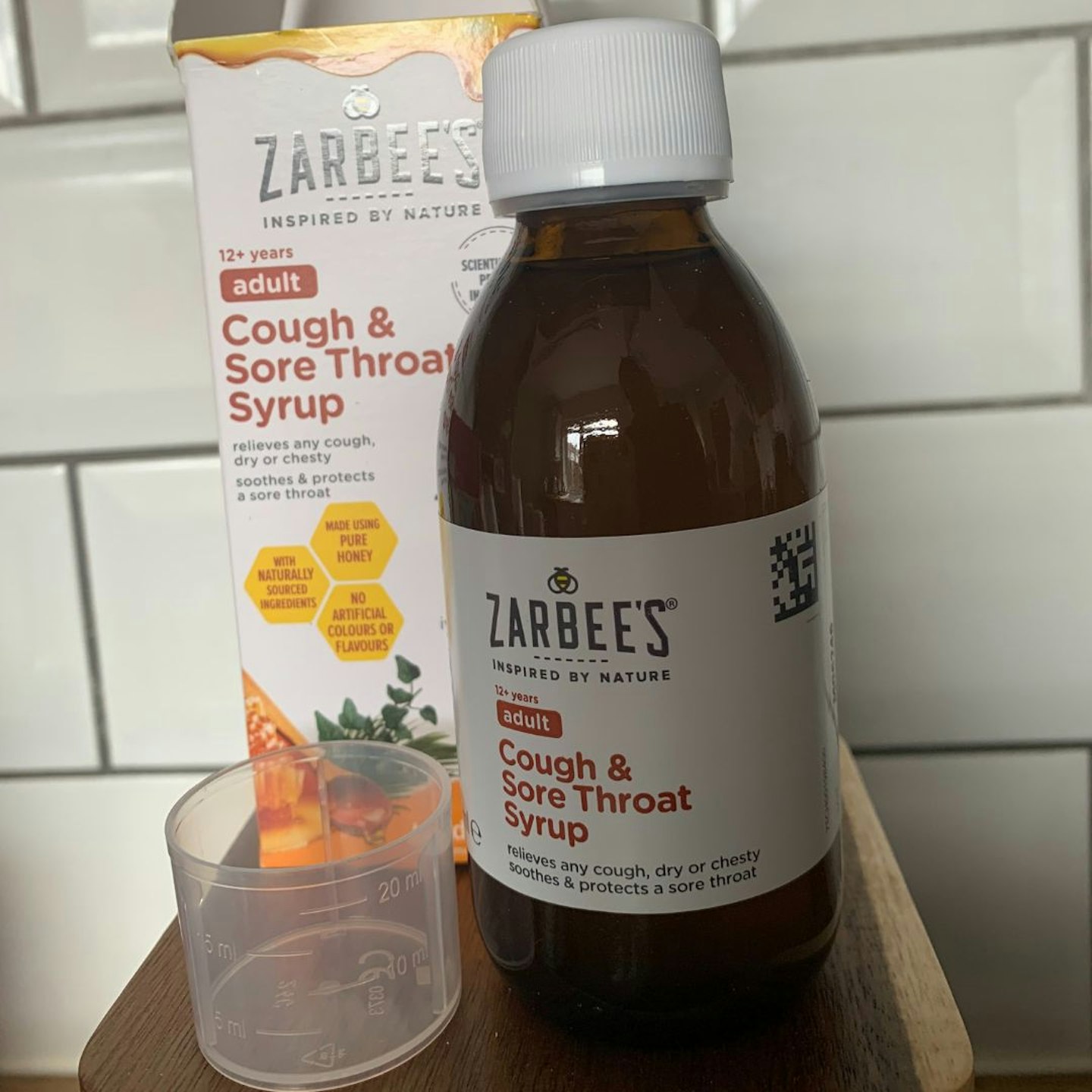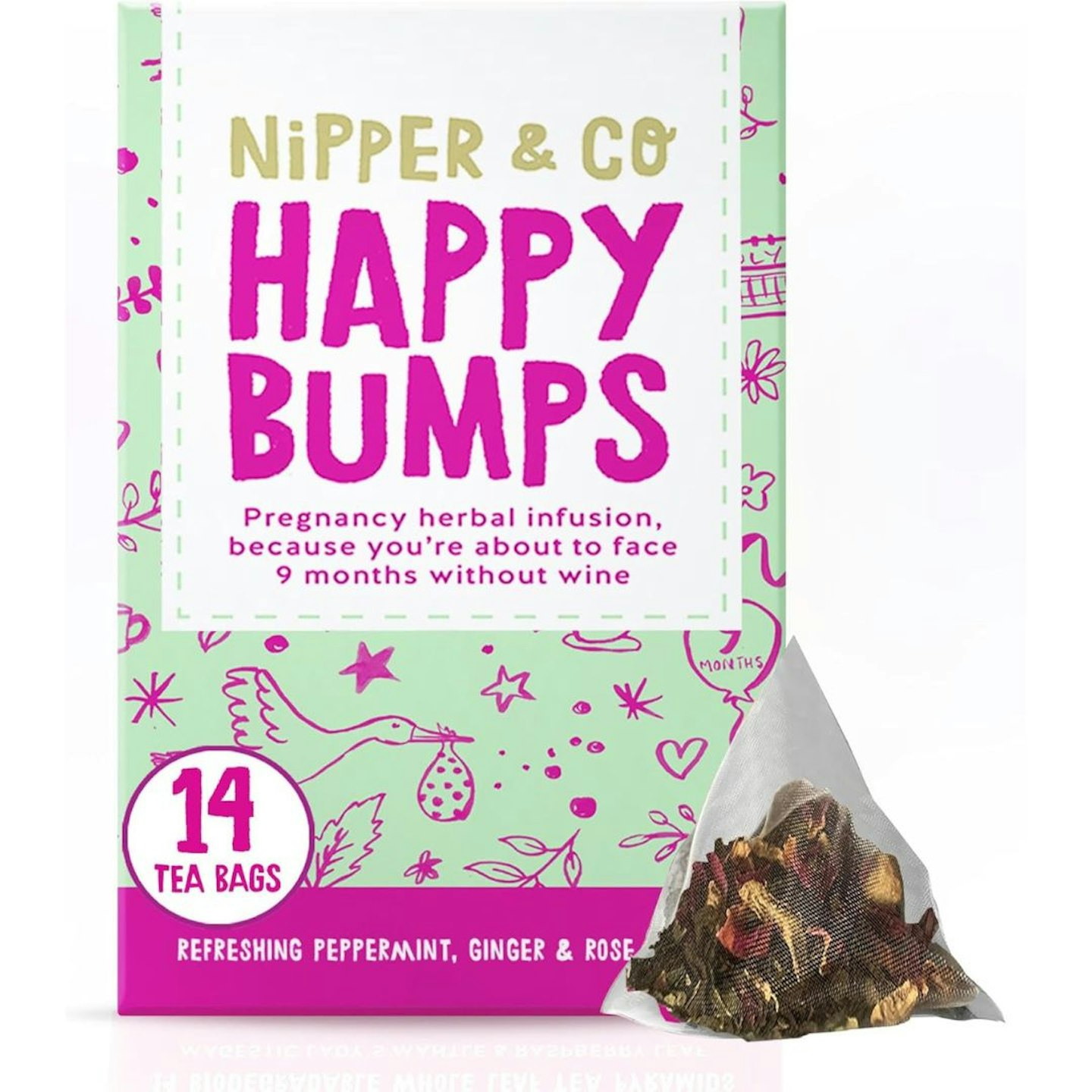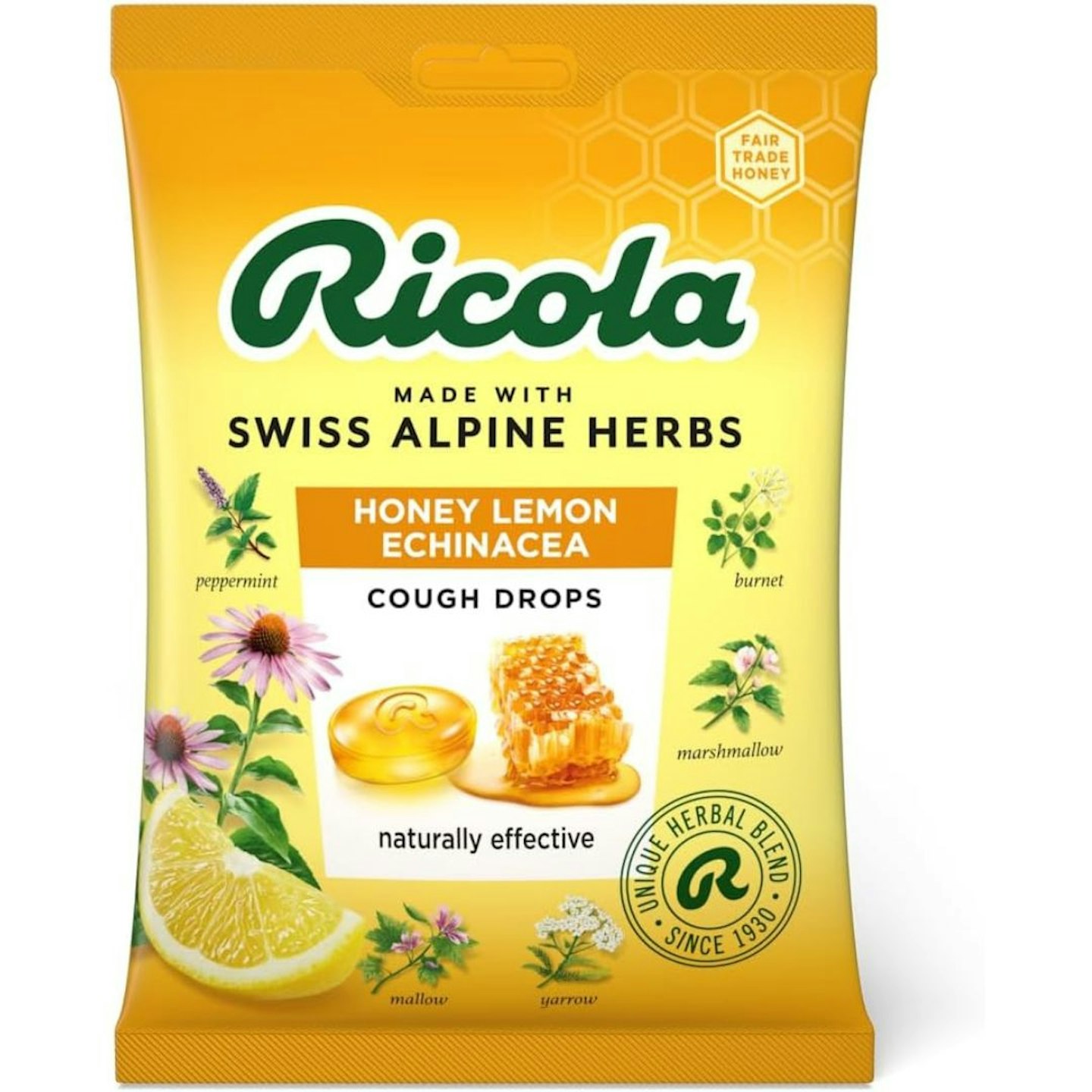There's nothing worse than a cough that you just can't shake, especially when you're pregnant, so knowing how to treat a cough in pregnancy is important to help you feel better as soon as possible. Having a cough in pregnancy is rather common and often nothing to worry about, but it can be a real nuisance. However, the good news is with a lot of self-care, and some tried and tested over-the-counter medicines and home remedies, you can shake that pesky cough.
Whilst you may be tempted to reach for your pre-pregnancy favourite cough remedy, there are a few more things to consider when you're expecting and a few treatments, like alcoholic hot toddies, that you should straight up avoid.
To help calm your anxiety in pregnancy when you're poorly and answer all your questions about getting rid of a cough in pregnancy, we've put together the latest health advice on how to treat a cough in pregnancy that will make you feel better in no time as well as some great products to help ease your cough.
The best medicine and remedies that are safe in pregnancy at a glance:
What causes a cough in pregnancy?
Common cold - There's always some virus going around, including the common cold, during pregnancy, but with a slightly weakened immune system, you're extra susceptible to catching a cold. While the runny nose and fatigue clear up quickly, a cough can linger a little longer.
Hormonal changes - Pregnancy hormones spark a whole range of changes in your body (and your mind, too). Some women even develop allergies or become more sensitive to allergens that previously didn't affect them before pregnancy. Unfortunately, some of these allergies can cause coughing. If you already suffer from allergies such as hay fever or pet allergies, pregnancy might amplify these allergies as your hormones change.
Heartburn and indigestion - Pregnancy can increase the risk of acid reflux due to hormonal changes that relax the oesophagus and physical pressure from the growing uterus on the stomach. Pregnancy heartburn is annoying and uncomfortable on its own, but it can also cause irritation of the throat and trigger a chronic cough.
Pregnancy rhinitis - Pregnancy rhinitis mimics allergy symptoms but is not caused by allergens. It is most common during the third trimester but can occur at any stage of pregnancy. Symptoms vary from person to person, but they typically include sinus pressure, a runny nose, increased mucus or phlegm in the throat, congestion, and coughing.
Can a cough in pregnancy hurt my baby?
You may be wondering if coughing while pregnant is harmful to your baby. The good news is that although it's rather unpleasant for you, a cough or cold shouldn't be harmful to your baby. This is because your little one is protected by the muscle of the uterus lining and amniotic fluid, both of which act as a barrier between the baby and any external movements such as coughing.
However, a persistent, severe cough can cause extreme discomfort and lead to other issues. Most commonly, these are muscle strain, fatigue, difficulty sleeping, or even urinary incontinence due to pressure on the bladder. Prolonged discomfort or lack of sleep can indirectly affect your overall well-being, which is extremely important for a healthy pregnancy. After all, a happy mummy makes a happy baby.
So, if you are suffering from a persistent or severe cough, it is always best to consult a healthcare provider. This is especially true if the cough is accompanied by other symptoms such as fever, shortness of breath, chest pain, or blood production. Your doctor or midwife can then determine the cause of the cough and recommend safe treatments that will not harm the baby.
Which cough medication is safe in pregnancy?
During pregnancy, it's advised to only take medication from your family medicine cabinet (especially over-the-counter medication) if you really need to, so avoid it where you can.
If you feel like you need to take something to ease those symptoms, some types of cough medicine and throat lozenges are safe for pregnancy. To make it easier, we have shortlisted our top products that help to ease coughs. It's always best to consult with a healthcare provider before taking any new medication, supplement, or remedy during pregnancy.
Best medicine and remedies that are safe in pregnancy:
Bestpregnancy cough remedy overall
 Credit: Amazon
Credit: AmazonSome over-the-counter cough medications are not recommended for use during pregnancy due to potential risks to the baby. Raw honey provides a natural and safe alternative for managing mild coughs and throat discomfort without the use of pharmaceuticals.
Raw honey has natural soothing properties that can help relieve irritation in the throat. It coats the throat, providing a protective barrier that can help reduce the urge to cough. It also has natural antibacterial and antiviral properties, which can help fight off minor infections that may cause coughing.
But not all honey is made equal; raw honey isn't necessarily the same as the honey you have in your cupboard. Raw honey is unprocessed and unpasteurised, retaining its natural enzymes, nutrients, and antioxidants, while regular honey is often filtered, which removes some of these beneficial components.
To help ease a cough during pregnancy, take two teaspoons of raw honey directly by mouth or dissolve it into a warm cup of your favourite herbal tea ( or warm water with lemon, and sip slowly to soothe the throat.
Best cough syrup medicine to use in pregnancy
 Credit: Mother&Baby
Credit: Mother&Baby www.boots.com
Free from harsh chemicals and artificial additives, Zarbee’s Adult Cough & Sore Throat Syrup is gentle on the body while effectively alleviating symptoms. It does not contain alcohol or any known allergens, making it a safe choice for you and your growing baby.
Made with natural ingredients, including flower honey and Ivy Leaf extract, this medication helps calm throat irritation and clear mucus from the airways. The formula also includes glycerol and xanthan gum for a smooth, soothing texture that coats the throat, reducing the urge to cough. We love this natural cough medicine because it tastes very pleasant, and in our experience, it works quickly and is very effective.
| Ingredients: | Flower honey (17.4%), Glycerol E422 (17.4%), Fructose, Hydroxypropyl Methylcellulose E464, Hedera helix L. (leaf) extract supported by Maltodextrins (0.26%) Xanthan gum E415, Potassium sorbate E202, Citric acid E330, Purified water.<br> |
Best cold remedy for pregnant people
 Credit: Boots
Credit: Boots www.hollandandbarrett.com
Elderberry has been used throughout history and worldwide because of its potential immune-boosting, antiviral, and antioxidant properties. However, Elderberry on its own can be very harsh on the stomach; thankfully, this liquid has been specifically formulated to be easy on the stomach whilst still having all of the great properties that can help you feel better and ease the symptoms of that tricky cough.
Sambucol Extra Defence, Black Elderberry liquid, contains powerful Antivirals, flu-busting vitamin C, and zinc, which can all help your body and immune system fight colds and flu.
Best pregnancy tea for treating a cough
 Credit: Amazon
Credit: Amazon Happy Bumps has been blended for pregnant women to help ease all pregnancy's troublesome symptoms, including morning sickness and coughs. Blended with pregnancy-friendly herbs, this tea keeps expectant mummas feeling their best throughout their pregnancy journey.
Ginger tea, peppermint tea, African mint Tea, and rose petal tea can potentially help ease a cough due to their ingredients' soothing and beneficial properties.
We love this 100 per cent natural tea because it can be enjoyed throughout pregnancy, and many mums online have stated that it has helped pregnancy symptoms.
| Ingredients: | Ginger Tea (39%), Peppermint Tea (25%), African Mint Tea, Rose petal Tea (11%). |
Best steam inhaler for easing a cough in pregnancy
 Credit: Amazon
Credit: Amazon Inhaling steam can help loosen congestion and relieve a stuffy nose or cough. If you don't want to take any over-the-counter medication, then this is a fantastic option, and it's safe to use throughout your pregnancy (and long after). This portable steam inhaler is our favourite because it is easy to use and only requires water. Later, you can use it with VapoPads containing essential oils after your baby arrives. Using the pads whilst you're expecting is not recommended, but this doesn't take away from the fantastic product and isn't necessary for easing a cough.
 Credit: Amazon
Credit: AmazonPerfectly crafted with a natural blend of 13 Swiss mountain herbs, these cough drops are infused with the comforting flavours of honey and lemon and a hint of echinacea to ease coughs and gently soothe sore throats.
Made with Fair Trade honey and free from artificial nasties, these drops provide throat-loving care that’s safe for you and your growing baby. These drops are vegetarian, Kosher, and a delicious way to find relief—because you deserve to feel good during this special time!
We love these cough drops because they are perfect to pop into your bag or keep on your nightstand to offer relief at any time of the day.
| Ingredients: | Sugar, Glucose Syrup, Honey (5.2%), Extract (0.5%) of Lemon Balm and Ricola's Herb Mixture, Vitamin C, Lemon Juice Concentrate, Acid (Citric Acid, Malic Acid), Natural Flavourings, Natural Echinacea Aroma (Echinacea Dry Pressed Juice), Mint Oil, Peppermint Oil, Menthol |
Best spray remedies for for easing a cough in pregnancy
 Credit: Amazon
Credit: Amazon Pregnancy can make you more prone to sore throats, which often cause coughing due to irritation and dryness. Packed with essential vitamins like A, B1, B2, B3, and bioflavonoids, this alcohol-free, water-infused spray delivers a precise 120mg dose to target throat discomfort and boost your immune system naturally. We like the slim design making it easy to carry in your purse or pocket, ready whenever you need a fast fix from your coughing fit.
This product is safe for adults and kids over three years old, making it a must-have for your family's flu and cold survival kit.
| Ingredients: | Glycerine, Water, Propolis Extract, Manuka Honey, Menthol Lactate, Natural Honey, Sucralose. |
Are cough syrups and medication safe in pregnancy?
Many cough syrups and medications are safe to use in pregnancy. However, research surrounding cough and cold medicines and pregnancy is relatively limited, so it's always best to check with healthcare professionals before taking any medication. The main ingredients that are considered safe in pregnancy include:
• Dextromethorphan – Considered safe throughout pregnancy to help suppress cough symptoms.
• Pseudoephedrine – This is only recommended after the first trimester, isn't suitable for those with high blood pressure, and helps relieve congestion.
• Guaifenesin – This helps to thin mucus but is only safe after the first trimester.
For those aches and pains that you might get with a cold, it is safe to take painkillers in pregnancy, such as paracetamol in pregnancy. Just try to take the lowest dose and only when you really need to.
If your cough is a result of allergies such as hayfever in pregnancy, you might be tempted to take an antihistamine tablet, but it's important to discuss this with your GP before taking it.

Natural home remedies
During pregnancy, and especially if you have a cough, you should aim to get as much rest as possible and drink plenty of water and fluids. This can also help a dry cough too.
A nice mug of good ol' honey and lemon can help soothe your throat and cough. Similarly, a nice cup of decaf tea can also do the trick. Some also find gargling with warm salt water helps, particularly if a sore throat accompanies your cough.
It's also a good idea to avoid any areas of heavy pollution or particularly dusty areas or places, as this could worsen your cough. If it's winter, avoid spending too much time in cold temperatures, as this can also amplify a cough.
When to see a doctor about a cough in pregnancy
As mentioned, you should visit your doctor if your cough comes with a fever. Secondly, if you've had your cough for more than ten days and the cough is quite severe, then you should speak to your doctor about any other potential causes that could need treatment.
How can I prevent catching a cough?
Here are some of the main things you can do to avoid catching a virus:
• Regularly wash your hands with warm water and soap, or use hand sanitiser if you're not near a sink.
• Ask your GP about getting a flu jab in pregnancy.
• If someone in your house has a cold or cough, avoid sharing towels with them and physical contact.
• Avoid touching your mouth or eyes as this is how viruses can infect our bodies.
• Stay fit and healthy, and aim to eat a balanced diet to boost your immune system.
• Drink plenty of water to keep your throat and respiratory tract moist, which helps prevent irritation that can lead to coughing.
• Manage stress through relaxation techniques like meditation or deep breathing. Stress is very bad for your body, not only when you are pregnant but throughout your life. Stress releases cortisol, suppressing your immune system, interfering with digestion and altering your blood pressure.
• Keep the air in your home moist, especially during dry weather or winter months, by using a humidifier.
Hannah Carroll is our Senior Digital Writer. In her capacity, she curates top-notch listicles, crafts insightful how-to guides, and delivers expert product reviews. As a mother of three, Hannah draws upon her comprehensive understanding of all facets of family life to bring true insight into all the products that make running a home easier.
